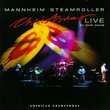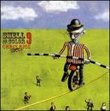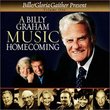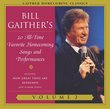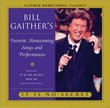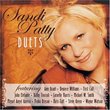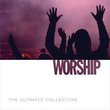| All Artists: John Tavener, Richard Hickox, Michael Chance, City of London Sinfonia, Patricia Rozario, Adrian Peacock Title: Tavener: Fall and Resurrection Members Wishing: 0 Total Copies: 0 Label: Chandos Release Date: 4/25/2000 Genre: Classical Styles: Opera & Classical Vocal, Sacred & Religious, Symphonies Number of Discs: 1 SwapaCD Credits: 1 UPC: 095115980026 |
Search - John Tavener, Richard Hickox, Michael Chance :: Tavener: Fall and Resurrection
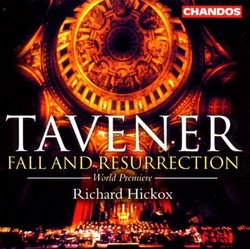 | John Tavener, Richard Hickox, Michael Chance Tavener: Fall and Resurrection Genre: Classical
This excellent live recording of John Tavener's massive millennial cantata was made at its premiere in St. Paul's Cathedral on January 4, 2000, and captures something of the extraordinarily epic atmosphere crea... more » |
Larger Image |
CD DetailsSynopsis
Amazon.com This excellent live recording of John Tavener's massive millennial cantata was made at its premiere in St. Paul's Cathedral on January 4, 2000, and captures something of the extraordinarily epic atmosphere created at the performance. The composer writes that Fall and Resurrection "tries to encompass, in brief glimpses, the events which have taken place since the beginning of time, with reference to Christian doctrine." In order to achieve this, he evokes the spiritual world of religions other than Christianity by the use of a ram's horn trumpet and Tibetan temple bowls, as well as by telling the Christian story in condensed episodes. The singers are all superb, and navigate their way around the non-Western vocal techniques Tavener requires of them with impressive facility. Their contribution is matched by the BBC Singers and City of London Sinfonia pulling out all the stops when necessary. Tavener takes some new musical paths here (though he describes the idea of innovation for its own sake as "mindless") but also explores more familiar musical territory (long pedal notes, slow-moving harmonies, and chanting). Great Tavener for both fans and novices. --Warwick Thompson Similar CDs
Similarly Requested CDs
|
CD ReviewsThe Fall of Substance and the Resurrection of Tedium kamus | United States | 03/17/2002 (1 out of 5 stars) "(The DVD version was reviewed here) This is the first complete piece of Tavener's I have heard other than a few brief excerpts from some choral works. I approached this work with heady anticipation after learning that Tavener is currently the world's most performed contemporary classical composer. Let me get straight to the point: the piece is boring, tedious, insipid, pretentious and often ridiculous (I involuntarily burst out laughing at the "Apple" section with its absurd and tortured staccato glottal utterances). Tavener's success is deeply perplexing to me (not to mention, disturbing) as he seems to lack both imagination and craft, ingredients I previously thought were necessary for success as a composer. As far as imagination goes, what little thematic material that makes up this sprawling 75 minute extravaganza is frightfully banal. Even a composer that I detest, Andrew Lloyd Webber, has way more melodic fluency than this guy. The presenter on the DVD solemnly informs us of how much the self imposed mathematical complexities of the "Chaos" section so taxed poor Mr. Tavener that it took him a month to write each page (!) The result? Five minutes of seemingly random quasi-aleatoric noodling by the entire orchestra that tries one's patience almost as much one's credulity that it took him so long to write it. What little imagination that is in evidence seems to be primarily in the non-musical arena: theatricality i.e. lighting, the ersatz medieval aesthetic and the choice of the inspirational setting of St.Paul's Cathedral in London. A few musical moments did catch my ear in the "Logos" section but these few morsels of interest failed to buoy the bloated and flaccid corpse that is the remainder of this work. As for craft, there is precious little of that too. As one other reviewer mentioned, Tavener tends to substitute repetition for development and, I would add, atmosphere for melodic and harmonic invention. In one interview segment he loftily decries development as a "secular" activity while in another interview segment he takes pains to impress the interviewer with a few childish variations he manages to wring from his malnourished Ney Flute "theme". His amatuerish handling of the orchestra and criminal abuse of the singers makes one wonder if he has had any training in orchestration whatsoever. As infuriating as I found his music, the disparaging comments he makes about Bach and Beethoven really frosted me. He implies that whereas he channels the "Creative Imagination of Christ" that those great Masters were "secular" dilettantes bound by their earthly limitations. For a supposedly religious man he seems to suffer greatly from the sins of arrogance and pride in his unilateral denunciation of their divine inspiration as being inauthentic. It hard not to conclude that he dismisses their genius in order to cover his own apparent lack of it. In short, I hated this music (and the arrogance of the man), and I am disturbed to live in a world where this poverty stricken excuse for profundity has found such a wide audience at the expense of many deserving yet lesser performed composers. The DVD wasn't a total loss however: St.Paul's looks very impressive and well worth a visit on a future trip to London." Another Viewpoint kelsie | Plainview, Texas United States | 05/29/2003 (5 out of 5 stars) "I noticed that most of the reviews of this work are negative, and that I would probably be one of few giving this disc more than two stars (or ANY stars, for that matter). Sir John Tavener has developed a rather traditional, yet unique, style throughout his compositional career. 'Fall and Resurrection' is a seminal example of that style. The work is slow in moving forward, and many parts will seem very repetitive and, at times, maddenly so. However, one of the shining points of this work is the performance by Patricia Rozario. She and Tavener share a close association, and in fact he was written a number of pieces ('Mary in Egypt', 'Therese') specifically for her voice-including the soprano part of 'Fall and Resurrection.' Tavener's orchestration is also brilliant, as in his decision to represent the Serpent in the Garden of Eden through the saxophone. Finally, the final track closes as the great bells of St. Paul's Cathedral toll in a complicated change ringing pattern, signaling the dawn of the new Millenium. From the opening representation of chaos to the closing toll of the bells, this is a prime example of Tavener's style, although I would not recommend it to newcomers. It is slow and tedious at times, however, Tavener's unerringly brilliant compositional style, coupled with Hickox's firm conducting and the excellent vocal team assembled here, results in a dazzling recording from this British master." A voice teacher and early music fan George Peabody | Planet Earth | 01/09/2006 (5 out of 5 stars) "EXOTIC, EROTIC, EXCITING TAVENER!
"This could be called Tavener's Creation, an oratorio-like account of the Biblical tale beginning with the representation of primordial Chaos. Tavener takes the story much further than Haydn....But like Haydn's, this is a warmly mature work, epitomizing it's composer's style and personality...Tavener's richly exotic textures are beautifully evoked by Hickox." GRAMOPHONE. (RICHARD HICKOX PASSED AWAY A WEEK AGO; HE WILL SURELY BE MISSED BY MUSIC LOVERS EVERYWHERE.) This is an excellent live recording of Tavener's massive millennial cantata made at its premiere performance in St. Paul's Cathedral on Jan. 4, 2000, and captures something of the exraordinary epic atmosphere created at the performance. 'Fall and Resurrection' tries to encompass ,in brief glimpses, the events which have taken place since the beginning of time. It is divided into three parts. Part I has seven sections and procedes from Silence to Chaos to Paradise to the Serpent to The fall to Adam's Lament to the Lament of Mankind. Part II entitled 'Prediction' incorporates verses or hints from the psalmist ( the divine David) and are sung by a countertenor (Michael Chance) interspersed with dance-like music. Part III is divided into two parts and introduces the Grand Organ in all its magnificence at the incarnation/Creation. John Tavener made the following comments about this work: 'Fall and Resurrection' is a kind of musical metaphysics, but it came to me in a vision which I hope contains a message of hope for the next millennium........This work should ideally be performed in a building with a large acoustic. The resonance of beautiful ancient instruments- the kaval, the ram's-horn and the tibetan temple bowls-brings to mind and soul something primordial, something lost, sometning innocent, something wild and untamed.' I have both the CD and the DVD of this work. Unfortunately I viewed the DVD before the CD. I found it to be very annoying and distracting. It took my attention away from the music which needs all the listening attention when you first hear it. Let's face it! Tavener is not the usual "run of the mill" composer. I find him challenging to listen to, but I continue to follow his musical trail and have learned to really enjoy most of what he writes. Now I can enjoy the DVD because the music is quite familiar. The performers are all very skillful and do well with the Eastern Orthodox sounds. Michael Chance was certainly a good choice for his solo part; he handled all the small sliding intervals in his usual flawless manner. And it is quite interesting to view some of the more unusual instruments and hear their strange sounds." |

 Track Listings (10) - Disc #1
Track Listings (10) - Disc #1



